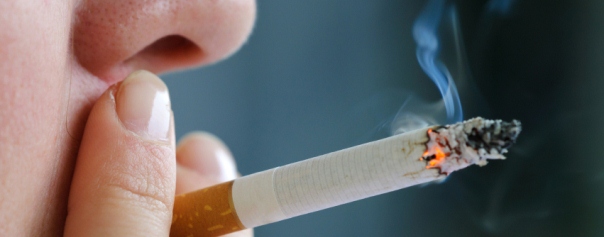Dr. Sarah Jarvis
13 November 2012

Most of us have never heard of COPD, but many of us have heard of chronic bronchitis, emphysema or smoker's lung. All these conditions are actually forms of COPD, or Chronic Obstructive Pulmonary (lung) Disease- a condition thought to affect up to three million people in Britain and one of the most common reasons for hospital admission.
COPD - what are the symptoms?
A phlegmy cough is usually the first symptom - even before you develop the next symptom, breathlessness, a 'smoker's cough' may mean you have early COPD. You tend to become short of breath only when you exert yourself to begin with (walking fast, or up hills or stairs). As time goes on, less and less activity is needed to bring on breathlessness. Producing sputum is a common symptom of COPD. Later on in the condition, you may get flare-ups of your COPD with more sputum (often green or yellow) and more wheeze or breathlessness.
How will I be diagnosed?
A machine called a spirometer measures how much air you have in your lungs and how fast you can get it out. This machine is now available in most GPs' surgeries. If not, your GP can refer you to a local hospital department for spirometry testing.
How do I stop it getting worse?
No matter how old you are when you're diagnosed, stopping smoking is the single most effective way of preventing your COPD from getting worse. It really is never too late to get benefit. Fortunately, the NHS recognises how difficult quitting can be, and offers a wide variety of treatment and support.
Long gone are the days where doctors and nurses gave you a lecture about it being your own fault and left you to get on with it. Talk to your pharmacist or practice nurse, or ring the NHS Smoking Helpline on 0800 169 0169.
What are the treatments?
In terms of medicine, inhalers are the mainstay of treatment of COPD. In the very early stages, you may be given an inhaler to take just when you need it. Later on, taking regular medicine combining an inhaled steroid and a long-acting medicine to keep your airways open can both improve your symptoms and cut the chances of a nasty flare-up. One combination medicine called Symbicort® prevented one hospital admission for every two patients with more advanced COPD who took it regularly for a year in recent studies.
Coping with symptoms of COPD
The rather off-putting title of 'pulmonary rehabilitation' is given to one of the most effective non-drug treatments we have. It includes a programme of education about your condition, advice about how to limit the impact it has on your life and practical help to increase your exercise tolerance by increasing your fitness and teaching breathing techniques. It has been shown to reduce tiredness and combat low mood. Ask your GP about a referral.
COPD - new advances
Until very recently, doctors thought nothing other than stopping smoking could slow down the progression of COPD enough to prolong your life. Recent studies, though, are showing encouraging signs that treating early with an inhaled medicine called tiotropium (Spiriva®) may actually slow down the decline in your lung health.
The Met Office is playing its part too. Certain weather often makes COPD worse, and every week the Met Office sends out a 'COPD forecast' to GPs who request it. They can then contact their patients and ask them to take certain actions to avoid a flare-up of their COPD - and cut their risk of a hospital admission.
http://www.patient.co.uk/blogs/sarah-says/2012/11/copd---the-forgotten-epidemic